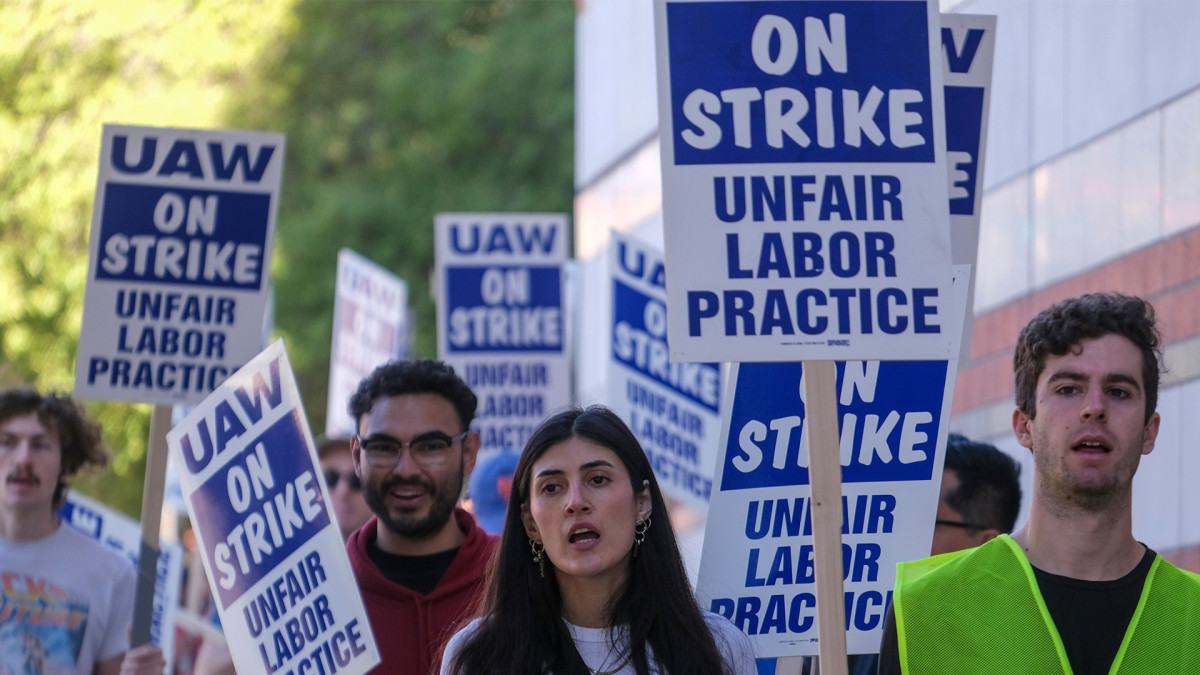
The United Auto Workers' Union late on Monday set a new strike deadline, vowing expanded industrial action unless there is "serious progress" in talks with the Big Three automakers.
In a post on X, the social-media platform formerly known as Twitter, UAW President Shawn Fain said it would unveil more strike targets, with more union members participating, by noon U.S. Eastern Time Friday, failing significant progress in talks with Ford (F) -), General Motors (GM) -) and Chrysler owner Stellantis (STLA) -).
The UAW is seeking a 40% pay increase, spread over 4 1/2 years, with an immediate 20% boost. It's double the 20% increases offered by Ford and GM and the improved 21% offer from Netherlands-based Stellantis.
UAW: 'We're not messing around'
"I have been clear with the Big Three every step of the way. And I’m going to be crystal clear again right now. If we don’t make serious progress by noon on Friday, September 22nd, more locals will be called on to Stand Up and join the strike," Fain said.
"That will mark more than a week since our first members walked out. And that will mark more than a week of the Big Three failing to make progress in negotiations toward reaching a deal that does right by our members."
"Autoworkers have waited long enough to make things right at the Big Three," he added. "We’re not waiting around, and we’re not messing around. So, noon on Friday, September 22nd is a new deadline."
Around 12,700 workers are picketing assembly sites around the Midwest, including a Ford plant in Wayne, Mich., a General Motors facility in Wentzville, Mo., and a Jeep plant owned by Stellantis in Toledo, Ohio.
In response, Ford has laid off around 600 nonstriking workers at the Michigan facility, tasked with making the Bronco SUV, while GM has said strike action in Missouri will likely affect around 2,000 workers.
Anderson Economic Group, a Lansing, Mich., consultancy, last weekend published a report suggesting that even a 10-day strike could cost the U.S. economy around $5.6 billion and tip the economy of the state of Michigan itself into recession.
“If we were to have a long strike in 2023, the state of Michigan and parts of the Midwest would go into a recession,” said CEO Patrick Anderson. “When GM workers went on strike in 2019, you saw gross state product drop in Michigan in the fourth quarter, while in the rest of the country it was largely unaffected."
"That won’t be the case this time if the UAW goes through on its threat to strike all three companies.” he added.
- Get investment guidance from trusted portfolio managers without the management fees. Sign up for Action Alerts PLUS now.







